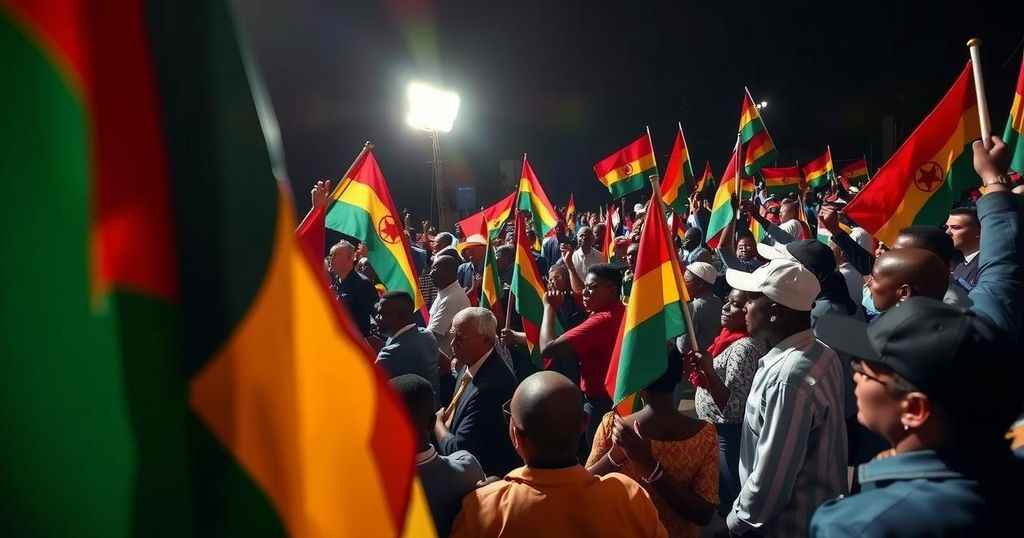Namibia’s opposition has called for the suspension of voting amidst significant confusion during the elections, caused by logistical failures and delays at polling stations. Protestors have expressed concerns about the Electoral Commission’s handling of the voting process, indicating a critical challenge to the longstanding ruling party, SWAPO, in light of growing public frustration over economic issues.
On November 28, 2024, Namibia’s opposition parties demanded the suspension of voting due to significant confusion and logistical failures that marred the national election proceedings. The Independent Patriots for Change (IPC) party indicated that despite polling stations remaining open beyond their official closing time due to long lines, issues arose with ballot counting and voting processes across the country. Numerous voters faced long wait times, and some polling stations reported a lack of ballots, leading opposition leaders to question the integrity of the Electoral Commission of Namibia (ECN).
In light of these issues, Christine Aochamus, a representative of IPC, remarked, “We have reason to believe that the ECN is deliberately suppressing voters and deliberately trying to frustrate voters from casting their vote.” The challenges during this election are particularly significant as SWAPO, the long-standing ruling party, faces its most substantial electoral test in over three decades. Opposition voices expressed frustration, asserting that the difficulties experienced indicated a demand for change among the population of registered voters amid growing dissatisfaction with the current government’s handling of unemployment and inequality issues.
This article pertains to the recent general elections held in Namibia on November 28, 2024, during which the opposition parties raised serious concerns regarding the electoral process, primarily due to extensive delays and logistical issues. The elections represent a pivotal moment in Namibian politics, as the SWAPO party has maintained authority since the country’s independence in 1990, but faces increasing public discontent due to high unemployment rates and socio-economic inequalities. The IPC’s calls for the cessation of voting highlight deep-seated frustrations among voters, many of whom have reportedly endured long hours in queues without the assurance of effective ballot casting or counting.
In summary, the demands from Namibia’s opposition to suspend the voting process reveal significant turmoil in the electoral process, exacerbated by logistical failures and delays. As they question the actions of the Electoral Commission, this election could serve as a critical juncture for SWAPO, which is now confronted with a strong challenge to its longstanding rule amid rising voter discontentment. The outcome may very well indicate the public’s desire for reform in the face of enduring economic hardships.
Original Source: www.seychellesnewsagency.com






